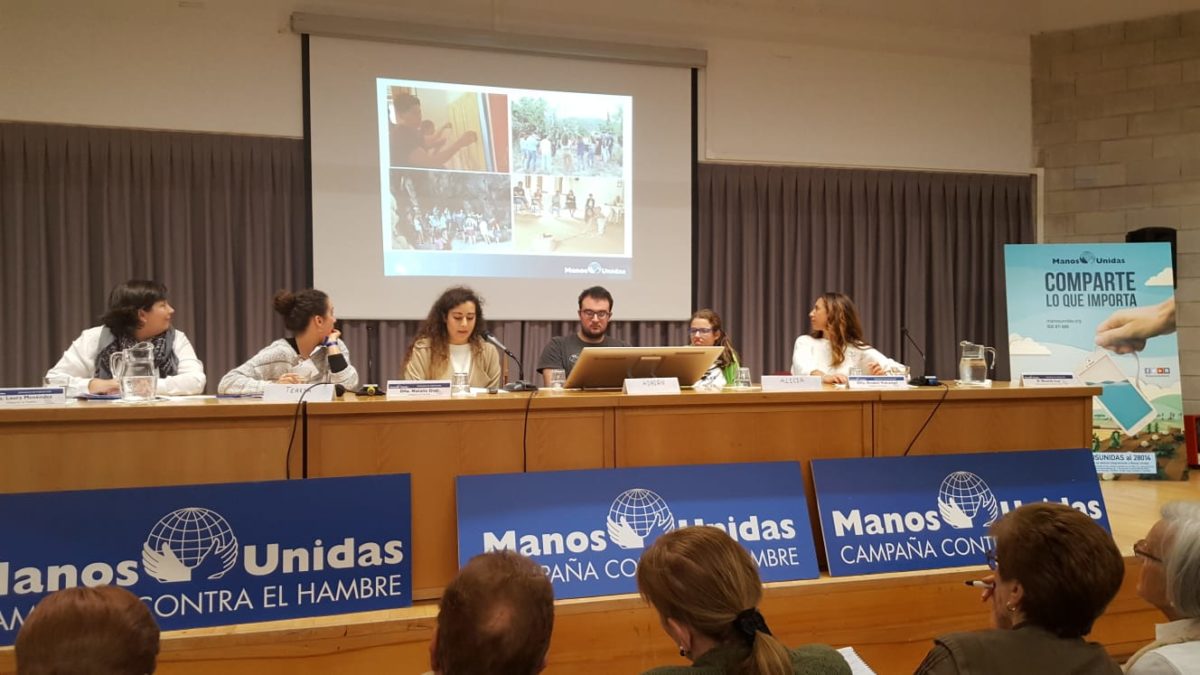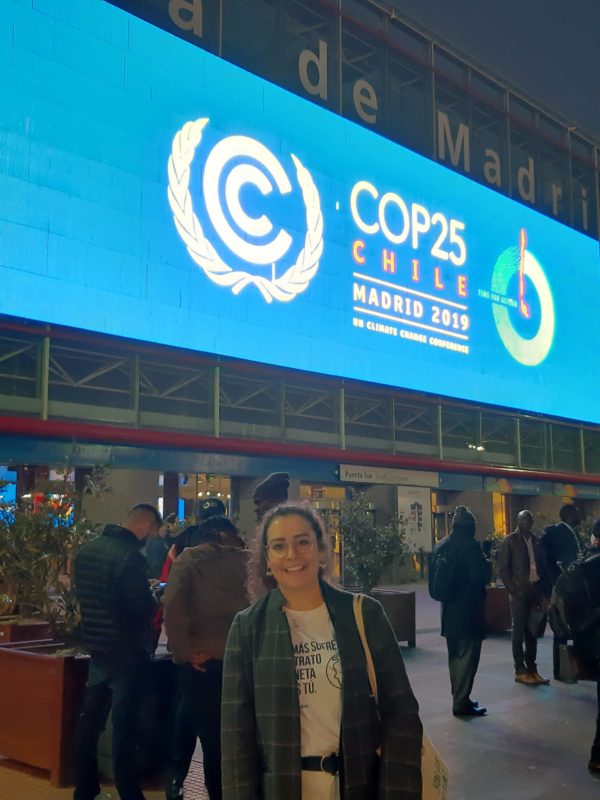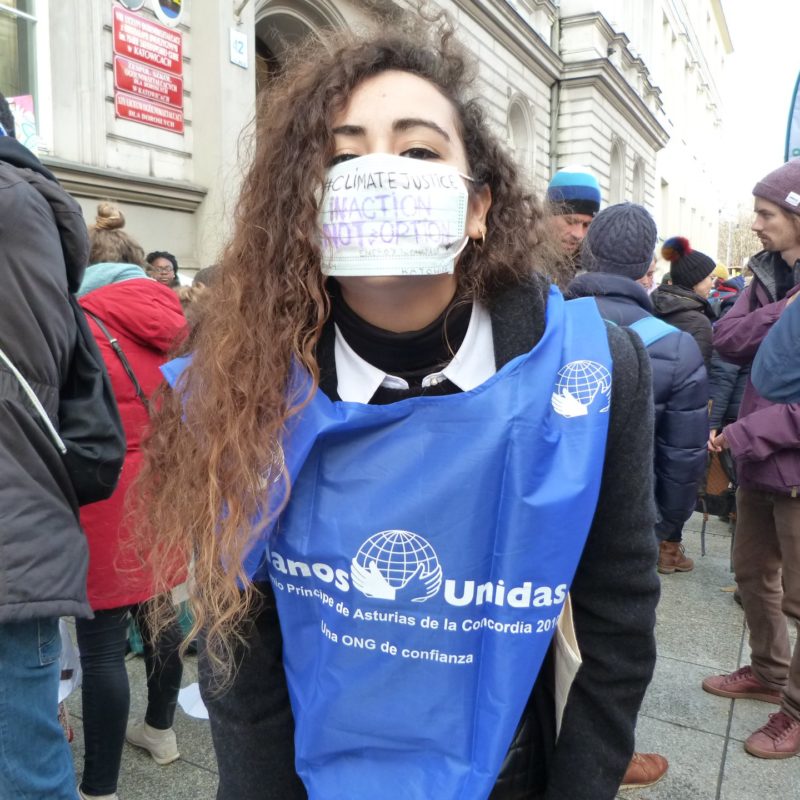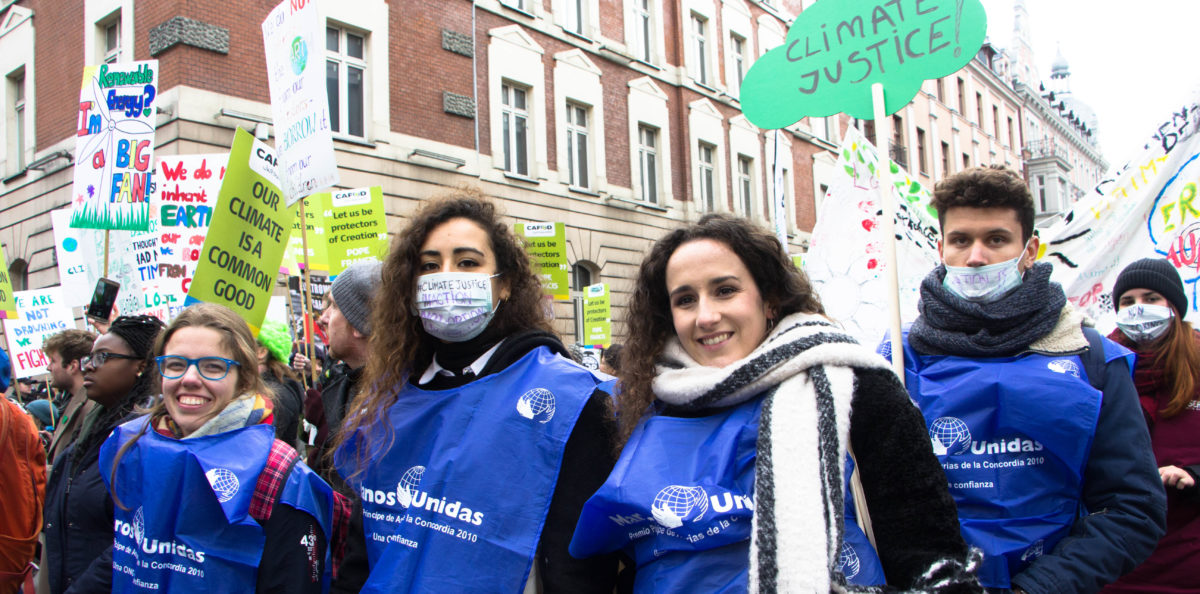Young women are often put in the international media spotlight as representatives of the climate movement and championed as leaders, but on the ground they can face cultural challenges to speaking up. On the occasion of International Women’s Day, we interviewed the Manos Unidas volunteer Natalia Díaz Martín (second to the left in the photo above) on her experience as a young woman in climate activism.
How are you active now in the climate movement?
I got engaged in activism and started fighting the climate crisis after participating in the Climate Camp co-organised by CIDSE and Manos Unidas in the summer of 2018. I am now one of the forerunners of Juventud por el Clima Tenerife, #FridaysforFuture on the Canary Island of Tenerife, and I am a volunteer with Manos Unidas. I collect photos of our events, give talks, and am a part of the youth network.
Why is it important that the climate movement value and encourage the participation of women?
One of the opportunities of this climate crisis is that it affects us all, although not in the same way. On the one hand, we are all involved and we need to change, and on the other hand, developing countries are drowning in impacts and have a lack of resources for mitigation. Within societies, as we know, women, children and the elderly are the most vulnerable and exposed to these unprecedented changes and suffer the most.
From this perspective, the presence of women in the fight against climate is as necessary as it is unavoidable.
Beyond this fact, in a predominantly patriarchal world, women are a powerful source of change, because of their tasks and duties. In fact, I would dare to say they are the most effective. If they change, the system changes, and more quickly.
Have you ever hesitated to take leadership positions in climate activism as a woman?

Likewise, although from the beginning we have tried to take a completely equal role in our public interventions – and most of the time we have succeeded – there is still a greater male predisposition.
This is a difficult question because, although at the beginning I had more leadership positions, I have been giving these up to other people for different reasons, without considering that one of these is the fact of being a woman. I have realized that many times the people that I see as most capable of transmitting the message are the men who accompany me in this struggle, leaving us women in the background or seeing us more comfortable behind the social networks. And, after all, this can be interpreted that we hide our faces in a completely involuntary way.
The times I have spoken at public events such as debates or media, including radio (although less so), have been because of the belief in the importance of giving women’s voices to this movement and because there were no other options. So yes, I have hesitated a lot to take a leadership role in this struggle, because of issues of trust or worth, shared with the rest of my colleagues.
Do you feel that in climate activism, your voice is valued as much as a man’s?
I believe that the message offered by a man is more powerful or reaches more people, while we women are always singled out and devalued for aspects that have nothing to do with our discourse, as we see happening with Greta.
Although I haven’t suffered such oppression, I have been asked repeatedly about the Greta phenomenon, about her, about who is behind it, and not about her messages.
However, I am happy to know and see recognition for so many women climate activists like Helena Gualinga who are giving voice to this crisis and the need for climate justice, I think we can be proud and feel that we are as much or even more a part of this than men.

What do you think can be done in the climate movement to value more the participation and voices of women?
I don’t think it’s a question of climate activism, it’s a question of thought and of the system.
The participation and voice of women is there, we just have to stop and listen to it and give it the same validity regardless of who is speaking, with the only certainty that it is a person and therefore deserves validity and respect.
However, as I have said, it is an unconscious act, interiorized and forged from our birth, and it is a personal job to keep changing, to keep informing ourselves and doing an exercise of introspection, to know how we act and why we do it. Taking off our blindfolds until we are able to see from a feminist point of view.
Nevertheless, I believe that this struggle is being a great impulse and intervening positively in the achievements of this equality.
After this interview I feel a little more feminist, because I have looked inside myself and I have opened up to you with complete confidence. I believe that is in large part what it is all about, loving and sharing.
This has been one of the most challenging and deep interviews that I have given. It has made me reflect more on being a woman. I discover in these lines that something assumed as my way of being coincides with a pattern shared by my gender. Is it me or has it been my education?

Natalia Díaz Martín is a 20 year-old volunteer with Manos Unidas and is in the third year of a teaching degree.

